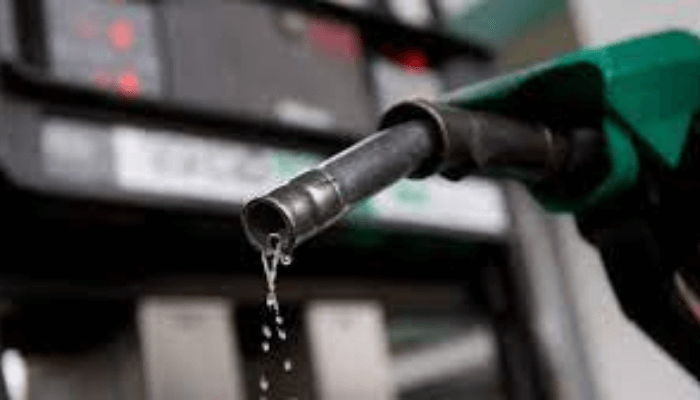Why petrol price is nearly N1,000 per litre
Petrol prices have continued to climb towards N1,000 per litre across major cities, as marketers blame the increase on a temporary halt in supplies from the Dangote Petroleum Refinery and price manipulation by private depot owners.
The recent development has raised fresh concerns about the stability of Nigeria’s downstream oil sector, despite the coming on stream of Africa’s largest single-train refinery, which had been expected to ease the country’s long-standing fuel supply challenges.
Depot price hike deepens pressure
According to industry reports, private depot owners have significantly raised their ex-depot prices in recent days following supply disruptions.
Findings revealed that depot operators now sell petrol at between N875 and N900 per litre, up from about N750 a few weeks ago. The sharp increase has filtered directly to retail stations, pushing pump prices in Abuja, Lagos, Port Harcourt, and other major cities to between ₦900 and N1,000 per litre.
Survey of the latest weekly energy bulletin of the Major Energy Marketers’ Association of Nigeria (MEMAN) revealed that the coastal pricing of petroleum motor spirit (PMS) stood at $697.25/MT. However, the ex-gantry price was noted as ‘on hold.’
“According to S&P Market Commentary, the Dangote Refinery is currently supplying just under 50 percent of Nigeria’s gasoline demand and is set to implement a new pricing structure under which 75 percent of output will be sold via coastal loading while 25 percent will continue through truck distribution, raising questions about the refinery’s earlier free truck delivery model,” the bulletin noted.
A senior member of the Independent Petroleum Marketers Association of Nigeria (IPMAN) said the absence of consistent supply has allowed depot owners to fix prices arbitrarily. “Everyone is simply trying to protect their margins. Without Dangote loading, depot operators determine their own prices,” the source said.
Read also: Dangote refinery resumes petrol sales in naira after government intervention
Supply gap
Abubakar Shettima, national president of IPMAN, confirmed to BusinessDay that the Dangote Refinery had not supplied petrol to marketers for several days, a situation that he said created room for depots to increase prices unchecked.
“The problem is that Dangote, for some days, has not supplied petrol to marketers, and the effect is what we are seeing now. Depot owners are fixing their different prices, and that is why prices are high,” Shettima said.
He noted that the refinery was expected to resume loading shortly, with marketers awaiting its official ex-refinery price before reviewing retail rates.
Industry analysts say the refinery’s temporary halt may have been linked to crude feedstock and logistical constraints. Earlier this month, it was reported that Dangote had briefly suspended naira sales due to crude supply bottlenecks. However, that was short-lived. The refinery was also marred by union disruptions before resuming operations.
Marketers caught in pricing dilemma
The halt in refinery supply has left marketers caught between higher depot costs and consumer resistance to further price increases.
As a result, some independent operators have resorted to sourcing fuel through imports, a costly and risky option given current exchange rate pressures.
Despite expectations that the Dangote Refinery would stabilise the market, analysts say its impact will remain limited until it can operate consistently and receive steady crude feedstock.
Read also: Dangote Refinery cuts petrol price to N820/litre, begins direct petrol supply September 15
Situation temporary but needs coordination
Billy Gillis-Harry, president of the Petroleum Products Retail Outlets Owners Association of Nigeria (PETROAN), described the situation as a temporary disruption that should stabilise soon.
“The industry is going through a realignment of supply lines. There will be some short-term fluctuations, but stakeholders are working together to ensure Nigerians are served better,” he said.
Gillis-Harry explained that marketers are sourcing from multiple channels, including Dangote, importers, and independent suppliers. He maintained that while local refineries should be prioritised, the sourcing framework must remain open to competition.
Consumers feel the impact
Across the country, motorists and small businesses are already feeling the pinch of the new price hike.
In Abuja, transport fares have risen by as much as 30%, while inter-state logistics companies have adjusted their rates to reflect higher fuel costs.
A commercial driver, Idris Abdullahi, told BusinessDay that the price of petrol has become unbearable. “We thought Dangote would solve this problem, but every week the price keeps going up. We don’t even know what to expect anymore,” he said.
Retail stations in Lagos and the South-West have also reported longer queues, with some outlets reducing daily supply due to uncertainty over replenishment.
Regulators silent amid forex challenges
So far, the Nigerian Midstream and Downstream Petroleum Regulatory Authority (NMDPRA) and the Nigeria Upstream Petroleum Regulatory Commission (NUPRC) have not issued official statements on the latest price surge.
Market watchers point to a broader structural issue: Nigeria’s continued reliance on imported petrol and imported crude feedstock, which exposes the system to foreign exchange fluctuations. With the naira trading at over N1,600 per dollar on the parallel market, import costs have continued to rise, further complicating pricing decisions.
Outlook: supply resumption expected
Both IPMAN and PETROAN have expressed optimism that petrol prices will ease once the Dangote Refinery resumes regular loading.
Shettima said marketers are “waiting to hear the new loading price” before adjusting pump prices, while Gillis-Harry expressed confidence that normal supply would return within days.

